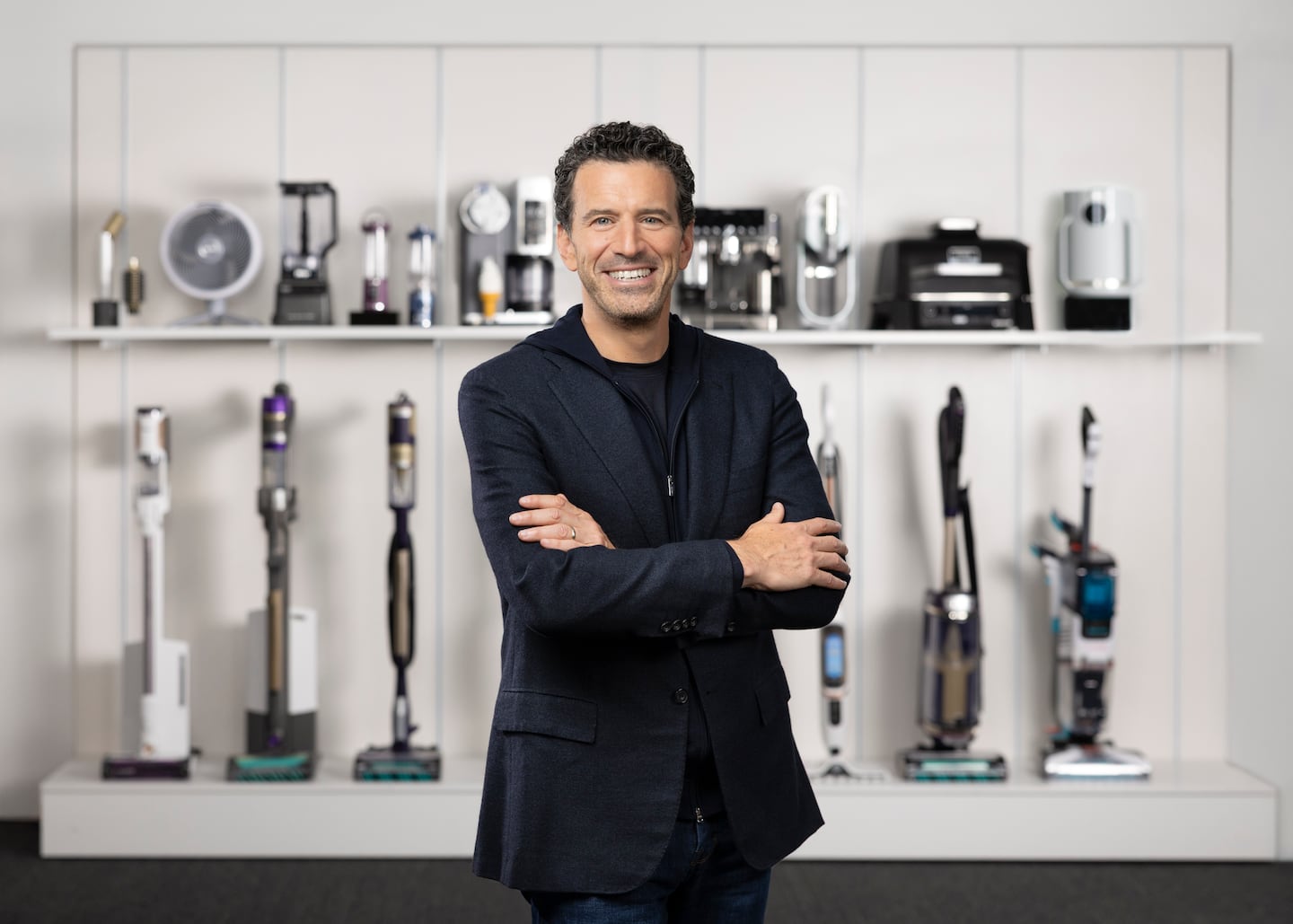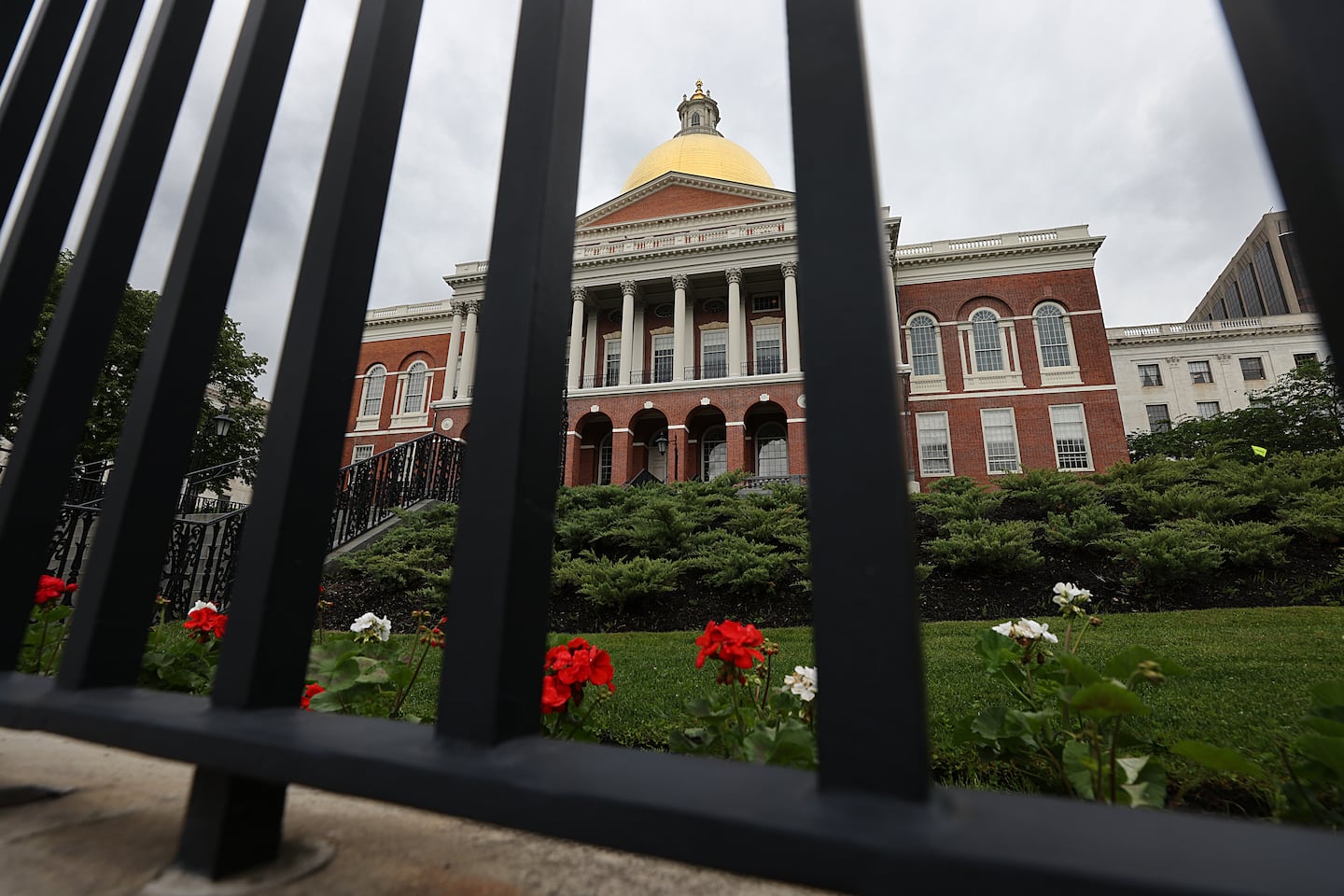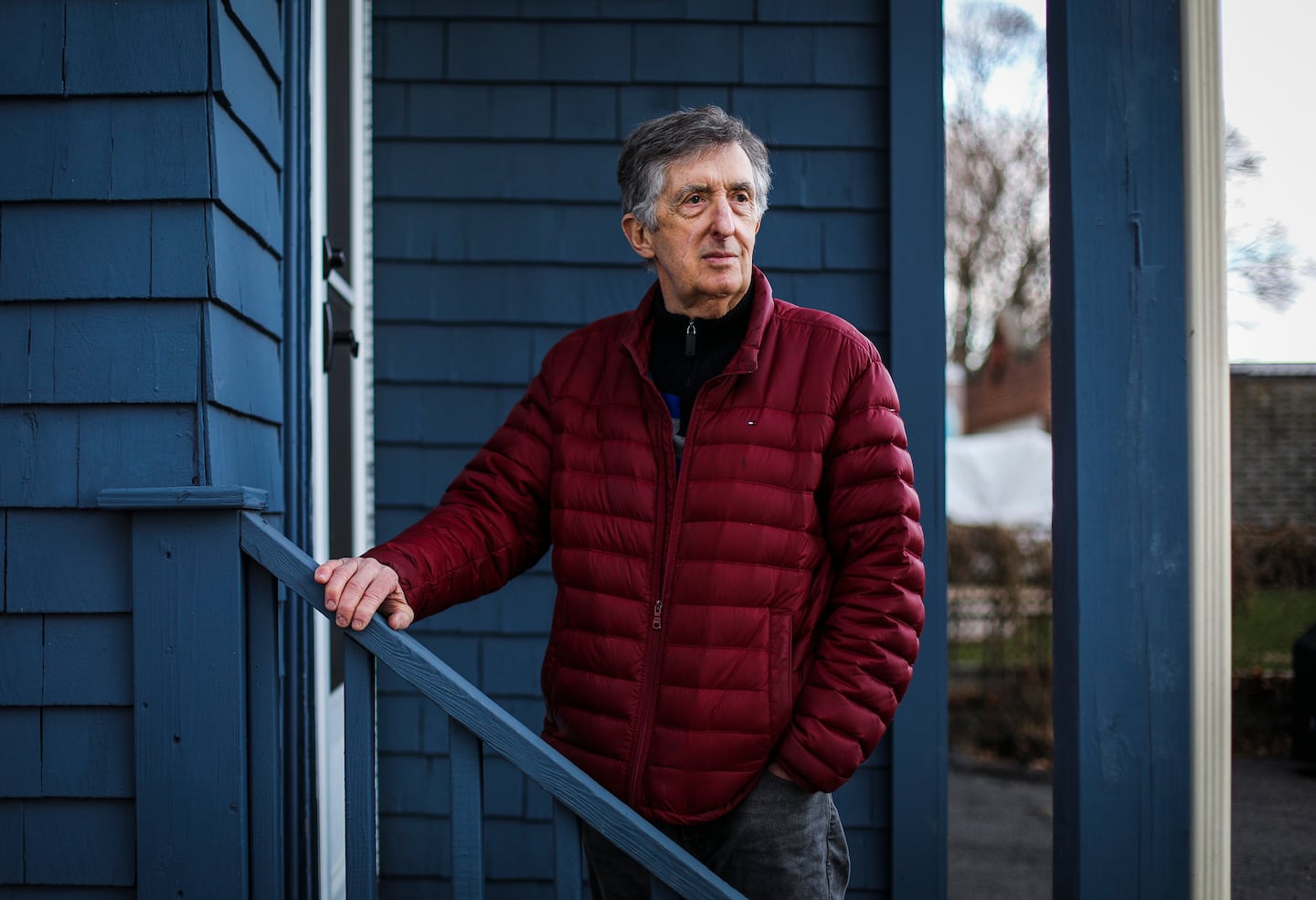De Innocentis, 1620’s chief executive and largest shareholder, said he hopes to make all of the company’s clothing lines — which include $200 work pants, $150 hoodies, and $300 cold-weather jackets — at the East Boston plant within the next 12 to 18 months. (1620 cofounder Josh Walker left about a year ago, but remains a shareholder.) De Innocentis said two of the factories he relied on have filed for bankruptcy, underscoring the advantage of taking the manufacturing work in-house.
“It’s important to secure our own destiny,” he said.
Revenue at Amesbury-based 1620 Workwear continues to grow at around 20 percent a year — solid, but not as strong as during the early days of the COVID-19 pandemic. The company also recently pared back the number of different items it sells, to get more efficient, though it still guarantees the workmanship for life, with a permanent offer for free repairs. It can also turn around designs more quickly because the clothes aren’t made overseas. And focusing on product quality instead of price point has allowed 1620 to differentiate itself from competitors.
“Making better, longer-lasting product, it takes time for that reputation to come to fruition,” De Innocentis said. “The consumer that seeks out an American-made product is more committed now than ever. Have we reached the riches that we thought we would? Definitely not. But has the product exceeded expectations? 100 percent.”
 SharkNinja chief executive Mark Barrocas.Photo courtesy of SharkNinja
SharkNinja chief executive Mark Barrocas.Photo courtesy of SharkNinja
SharkNinja is setting up its own “Shark Tank.”
Much like that reality TV show, Needham-based SharkNinja is holding an entrepreneurship contest in which finalists make in-person pitches for business ideas. The consumer products company is working with startup accelerator MassChallenge to run the contest.
The SharkNinja Innovation Challenge is open to 18- to 24-year-olds with ideas that could help SharkNinja solve consumer problems, including how to make products or packages more universally accessible or reimagine them so they’re more environmentally sustainable.
Entries are due Oct. 24, and six to 10 finalists will be picked for a “Shark Tank”-style pitch meeting in March. The top three will win cash prizes of up to $25,000, and all finalists will get support and mentorship from SharkNinja and MassChallenge, including assistance with patent preparation.
For chief executive Mark Barrocas, this is another way of promoting SharkNinja as a cutting-edge company where engineers and technical designers want to work, and to build on its science-and-math outreach to local schools. “I want SharkNinja to be known as a Boston innovation powerhouse,” Barrocas said.
It’s also a way for SharkNinja, perhaps best known for its Shark line of vacuums and Ninja blenders, to find new ideas.
“We could partner with these entrepreneurs . . . to commercialize these ideas,” Barrocas added. “It’s not the exclusive reason for [the contest]. That is definitely the hope.”
MassChallenge chief executive Cait Brumme says SharkNinja’s sponsorship will help cultivate a new generation of entrepreneurs.
“We think this will help us support a whole new category of inventors,” Brumme said. “We absolutely hope that the teams that are local will think of us as a home base, as they will also hopefully think of the SharkNinja offices [while bringing] teams from other cities to Boston.”
Health care pays off, for lobbying
 Health care is a hot topic among the state’s lobbyists.Suzanne Kreiter/Globe Staff
Health care is a hot topic among the state’s lobbyists.Suzanne Kreiter/Globe Staff
All the uncertainty around the future of health care is great for business — if you’re in the lobbying business.
In Massachusetts, the top four spenders on lobbying in the first six months of 2025 were health care trade groups, according to new data from Secretary of State Bill Galvin’s office. The Massachusetts Health & Hospital Association ($578,000) nudged out last year’s number one spender, the Massachusetts Association of Health Plans, which was close behind at No. 2 ($550,000). Rounding out the top four: the Massachusetts Biotechnology Council and the Association for Behavioral Healthcare.
The biggest corporate spender was Keolis, the commuter rail operator ($225,000), followed by simulcasting operator Sterling Suffolk Racecourse, and hospital chains Beth Israel Lahey Health and Mass General Brigham.
For Smith, Costello & Crawford, which is on track to be the busiest lobbying firm yet again, founder Jim Smith said health care was the primary growth driver. Smith’s firm reported $3.7 million in lobbying fees on state issues in the first six months of 2025, compared to $2.9 million a year ago, widening its gap ahead of Tremont Strategies Group, the second-busiest firm.
Smith’s firm took on most of the late Phil Johnston’s clients after his death, and recently landed Danielle Fleury, who lost her job as deputy administrator at the federal Health Resources and Services Administration because of budget cuts. The firm now has 10 full-time employees and a half-dozen consultants.
Drops in federal reimbursements under President Trump and a Republican-led Congress are driving much of the uncertainty, especially for a sector primarily consisting of nonprofits.
Smith, Costello & Crawford rose through the ranks of Boston lobbying firms by focusing on health care, energy, and marijuana. Energy continues to keep the firm busy, particularly as Massachusetts officials plow ahead with decarbonization efforts. But oversaturation in retail cannabis has meant that some of the firm’s marijuana business has gone up in smoke.
No early exit for John Nucci
 John Nucci posed for a portrait in 2021.Erin Clark/Globe Staff
John Nucci posed for a portrait in 2021.Erin Clark/Globe Staff
There aren’t many people in Boston who can draw three former mayors along with more than a dozen current and former city councilors for their retirement party.
But there aren’t many people in Boston quite like John Nucci, the former city councilor who helped reposition Suffolk University’s downtown campus as its senior vice president of external affairs.
Nucci, who is 73, drew a crowd of political and business leaders to his sendoff at Suffolk’s law school last week — including former mayors Ray Flynn, Marty Walsh, and Kim Janey. State Representative Adrian Madaro, who hails from Nucci’s neighborhood of East Boston, read a proclamation from Mayor Michelle Wu declaring Sept. 30 to be “John Nucci Day.”
Suffolk president Marisa Kelly talked about the lasting impact Nucci has had on the university, in part by shifting its locus away from the Beacon Hill neighborhood with its construction in the Downtown Crossing area over the years.
Walsh worked with Nucci on a deal to refurbish an East Boston park so it could be shared with athletes from Suffolk and local high school and youth teams. Walsh also praised Nucci for helping to open up Suffolk dorms in the early days of the COVID-19 pandemic for homeless residents, saving “hundreds of lives with that gesture of kindness.”
One recurring joke involved Nucci’s skill at quietly leaving events early. State Representative Aaron Michlewitz congratulated everyone for staying longer than Nucci would have stuck around, and Nucci’s son Daniel Nucci noted how his 6-foot 4-inch Italian dad “perfected the Irish exit.” (All three of Nucci’s sons, including Michael Nucci and John Nucci, graduated from Suffolk.)
Other than Nucci, the person who drew the most applause was Kerri Perullo, who in 2018 donated one of her kidneys to ensure he could have a life-saving transplant.
Nucci started off his remarks by joking how lucky he felt, seeing who would attend his funeral, before he dies.
He offered sobering words about public discourse in today’s charged climate. “Try to find common ground,” he said. “You don’t always have to win to move things forward.”
And he joked that maybe he has one more political adventure left in him, by saying: “I’m going to go home and wonder if I should run for something or not.”
And he probably was only half-kidding about that.
Jon Chesto can be reached at jon.chesto@globe.com. Follow him @jonchesto.
